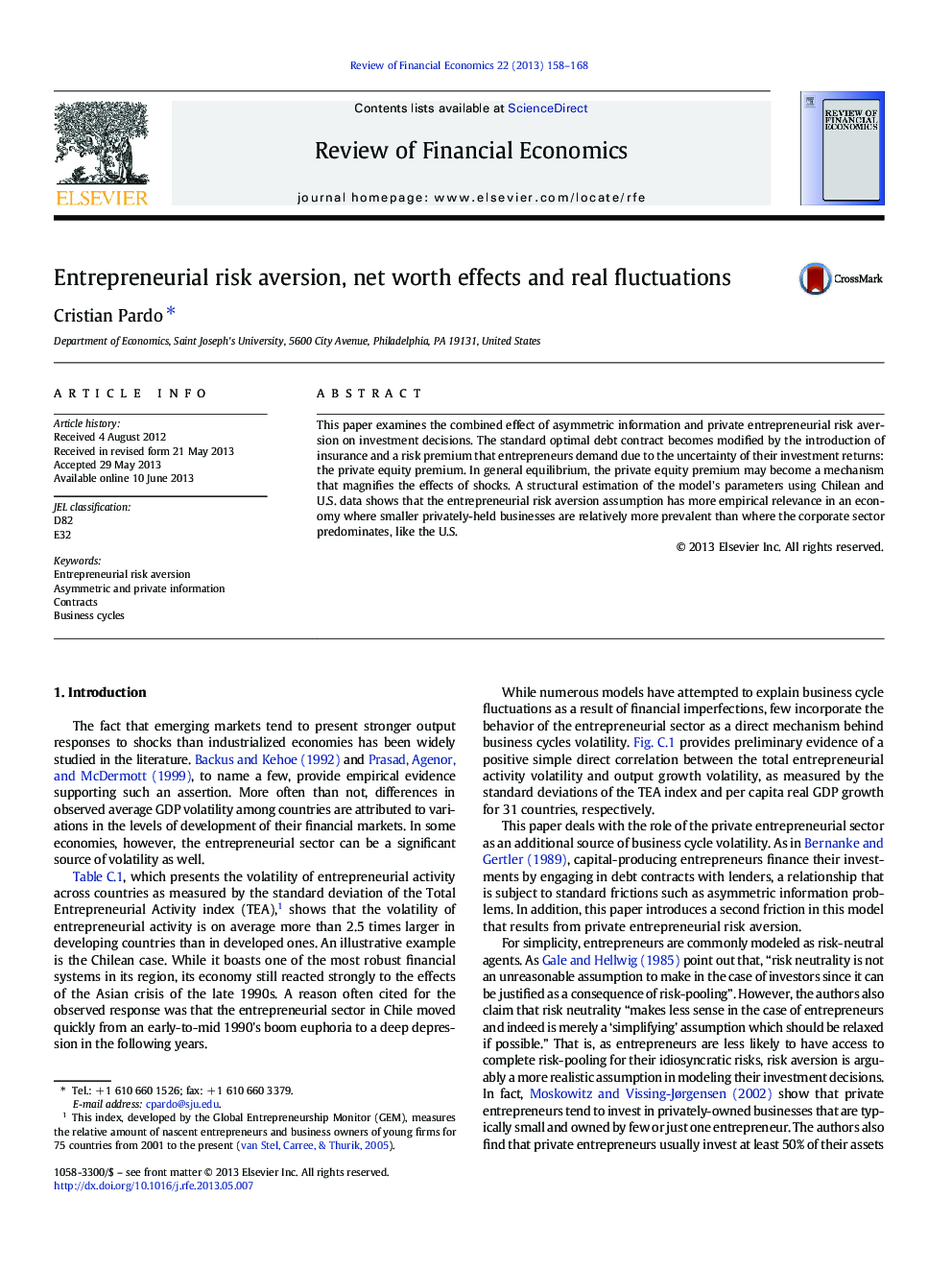| Article ID | Journal | Published Year | Pages | File Type |
|---|---|---|---|---|
| 986867 | Review of Financial Economics | 2013 | 11 Pages |
This paper examines the combined effect of asymmetric information and private entrepreneurial risk aversion on investment decisions. The standard optimal debt contract becomes modified by the introduction of insurance and a risk premium that entrepreneurs demand due to the uncertainty of their investment returns: the private equity premium. In general equilibrium, the private equity premium may become a mechanism that magnifies the effects of shocks. A structural estimation of the model's parameters using Chilean and U.S. data shows that the entrepreneurial risk aversion assumption has more empirical relevance in an economy where smaller privately-held businesses are relatively more prevalent than where the corporate sector predominates, like the U.S.
